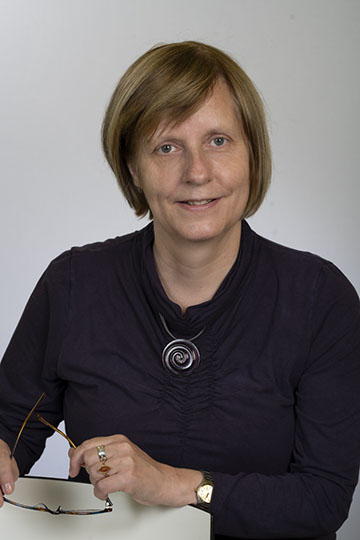
Bettina Heise
In this installment of Senior Member Insights, OPN talks with Bettina Heise—the head of optical coherence tomography (OCT) technology at the Research Center for Non-Destructive Testing (RECENDT) and a senior scientist at Johannes Kepler University Linz, Austria. Heise completed her Ph.D. at Johannes Kepler University, and her research interests include microscopic imaging techniques, programmable and computational optics, spectral and hyperspectral imaging and signal processing, and knowledge-based data analysis and machine learning.
What first interested you in pursuing science?
It was the pleasure of thinking about natural phenomena. This began in discussions with my parents and was driven by good teachers at school, which led me to go deeper into exploring scientific and technical issues. I grew up not far from Jena, Germany, so I also developed a special interest in optics, light and mathematics.
What aspect of your current work do you find the most interesting or exciting?
Currently, I am a member of two research institutions in Linz, Austria: RECENDT and the Johannes Kepler University. There, I work on modern imaging technologies, with an emphasis on OCT and data analysis. Optics and photonics have made astonishing progress in recent years, which has also been made possible by mathematics and advanced computing methods. Applications for imaging and OCT arise in materials testing, biomedicine and other fields. I find this interdisciplinarity exciting, as it allows me to transfer approaches into new fields of application and also to exchange experiences with numerous young scientists.
What tips for successful networking do you have for early-career professionals?
Be open to people in different fields, in your own area of expertise, but also beyond. Networking is essential for the sciences, and it takes time. Sometimes discussions in smaller workshops and groups can be more fruitful to create new contacts than discussions at very large conferences.
What professional resources do you rely on to stay active and engaged with your field?
Conferences, workshops and writing scientific papers and reviews. With all of the current COVID-19 restrictions, emails and online meetings are also very beneficial for keeping in contact.
What skills do you think are most important for someone interested in a career like yours?
I would say that the most important skills are a strong commitment and interest in the research topic, openness to scientific innovations, the will to survive even during weak funding periods and an enthusiasm for interdisciplinary teams.
What’s the best career decision you’ve ever made, and why?
The restart and writing of my dissertation after a career break. Since I had a family-conditioned break due to moving, it was not easy to start a new scientific career. I had family duties and didn’t know anyone in my new environment. Writing a dissertation and devoting myself to scientific work again finally opened up new perspectives in my career, which brought me back into contact with colleagues and the field of research.
What advice do you have for young scientists who are discouraged about their current work or career path?
Read the autobiographies and biographies of earlier scientists. Often, they didn’t have a straightforward career path and had to struggle with professional, financial or private difficulties. Also, try to take detours and try to maintain scientific contacts.
What is one piece of advice that you wish you were given as a student/early in your career?
Do not expect everything immediately—some solutions and results come with patience and time and maybe in a modified form.
What habits do you frequently rely on that help you to succeed?
I think it’s essential to have a good network of friends or family who can support you even in some discouraging situations, or where you can share your experiences or ask for help. It’s also important to have some hobbies to relax, discuss and see the world beyond research.
If you weren’t in the sciences, what would be your dream career?
A few years ago, when my children were growing up, I wished I could clone myself—one half for family, one half for science. Now, after their studies, my two sons have already found their own profession, and we can discuss the challenges of each career path from time to time.
I still remember that in my early childhood I had the dream of becoming a doctor and going to work in a developing country to support the health system there. I have not (yet) realized this dream, but I now have the chance to build up an interesting medical study project by collaborating with local radiotherapists in the field of advanced imaging.
I also like to travel and meet people and colleagues to get to know their culture, life and environment.
